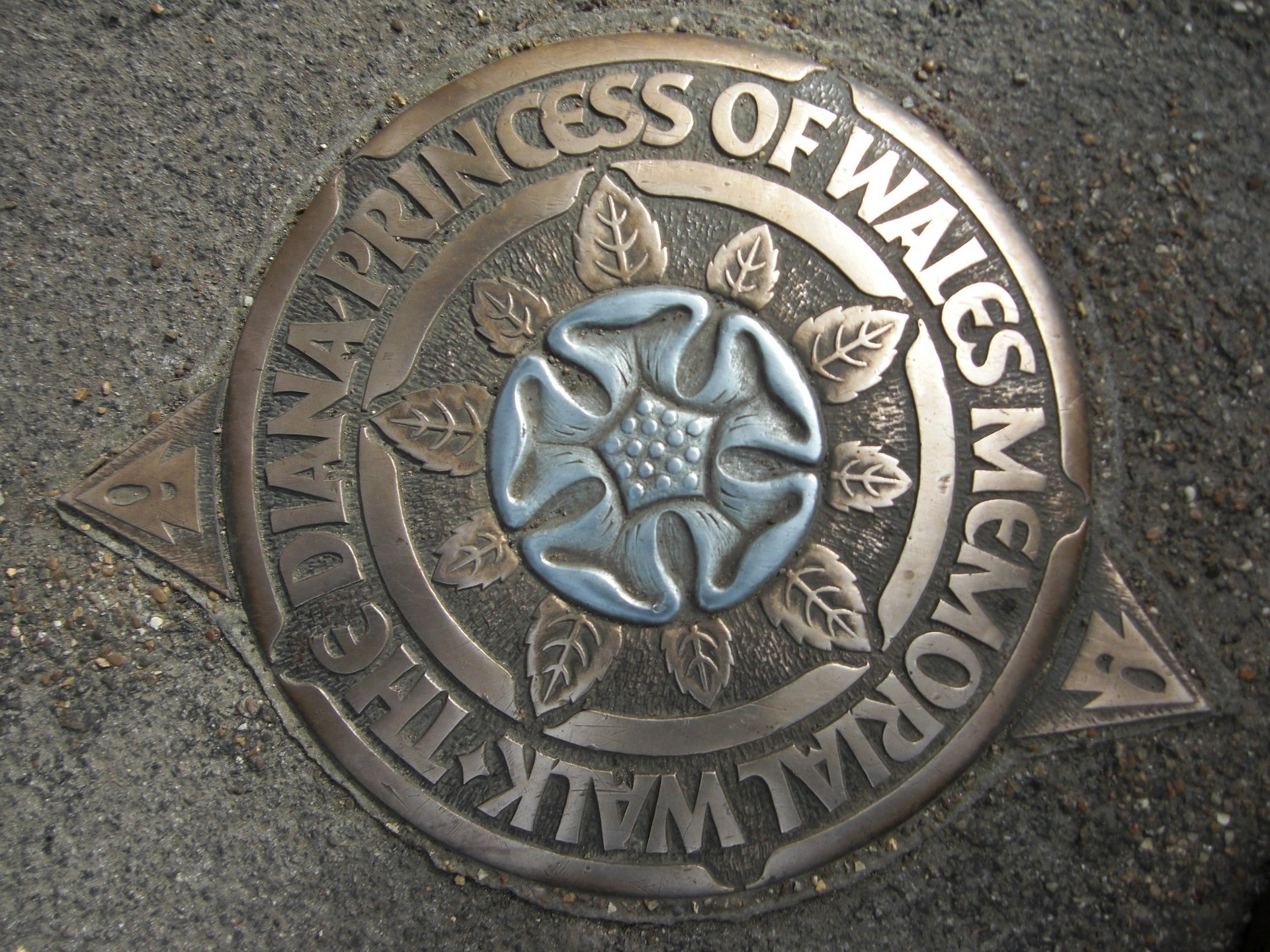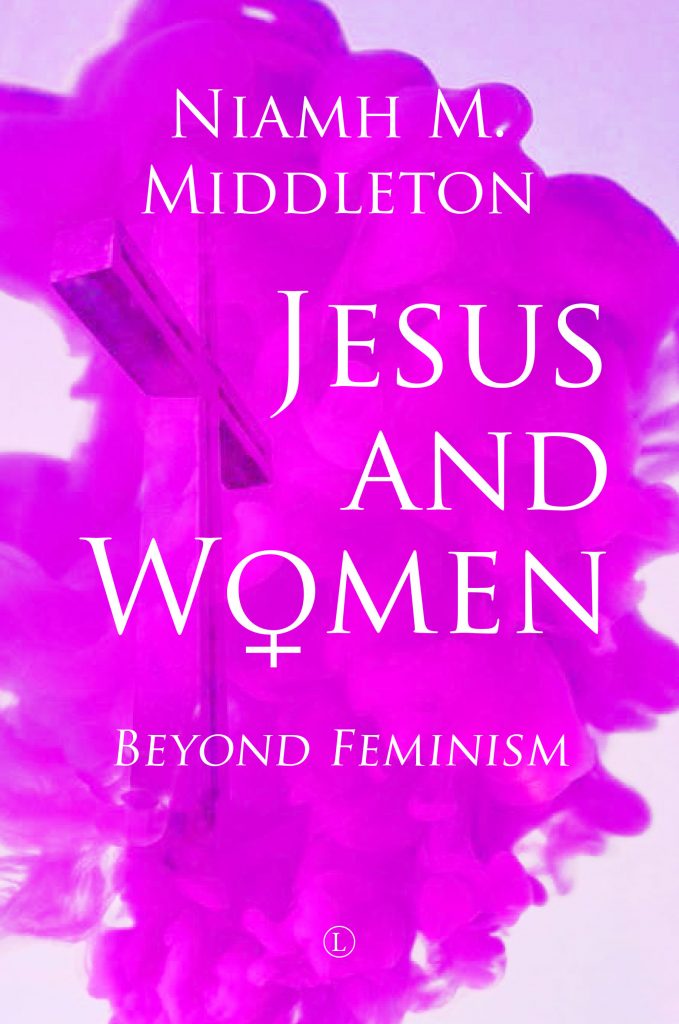
Princess Diana: The First #MeToo Martyr”
Irish feminist theologian Dr Niamh M. Middleton, author of the new book Jesus and Women: Beyond Feminism, says that the Christian Church remains an inherently sexist institution and one that in tandem with politics still works to preserve male social dominance.
In this exclusive article, Dr Middleton reveals how this patriarchal collusion led to Diana, Princess of Wales being castigated by the establishment while different standards were applied to her royal husband. She is, says Dr Middleton, a heroine of her sex and perhaps the first #MeToo martyr.
By Dr Niamh M. Middleton
Dubbed the “People’s Princess” and the “Queen of Hearts”, Diana, Princess of Wales is remembered today for her wonderfully caring and loving nature, which manifested through her extensive charity work and outreach programmes for the needy and marginalised.
Yet as I argue in my new book, Jesus and Women: Beyond Feminism, she should also be considered in a social and religious sense as a true martyr to her sex. Indeed, the sad story of her short life, divested of the fairy tale that has grown around her, demands that we re-evaluate her as a prototype heroine of the #MeToo era.
For Diana, for all her exceptional strength, was still a victim, both of the Christian Church’s ongoing inherent sexism, and of the British monarchical system, which retains strong links with the Protestant Church.
It started off so well. The British public was introduced to the ultimate archetypal princess who meets and marries her handsome prince. Yet this is where the fairy tale ends because we know that the promised ‘happy ever after’ never arrived. Instead, her marriage to Charles, Prince of Wales broke down, privately at first but then very publically upon the publication of Andrew Morton’s book, Diana: Her True Story, in 1992.

We learned about how Charles had entered into an extra-marital affair with his former girlfriend, Camilla Parker Bowles—something which Diana would later famously sum up as “There were three of us in this marriage, so it was a bit crowded”.
Diana, in her turn, would enter into an affair and then, upon separation, into several high-profile relationships, yet the stark contrast between her treatment and that of Charles throughout her life exposes a troubling double-standard within the Christian Church that continues today.
As the future king and head of the Protestant Church, Charles was expected to sire an heir to the throne and this necessitated marriage to a virginal aristocrat. Yet no similar expectations of virginity or sexual continence were placed upon Charles, who had previously enjoyed a privileged, playboy lifestyle.
In the years that followed, Diana would find herself the target of a concerted campaign waged against her by the male-dominated establishment. She was barred from making humanitarian trips overseas and was constantly criticised within the media as well as harassed by the paparazzi. Charles, by contrast, was spared such pillorying. Why was this so? Because it has traditionally been expected that royal wives endure their husband’s infidelities and trespasses while remaining loyal and faithful themselves.
It was Diana who was blamed for the disintegration of her marriage, not Charles, and her subsequent hounding by the media, a tool of the establishment, led her to contemplate permanent relocation abroad.

In the UK, politics is inextricably linked with religion due to the fact that the monarch is also the head of the state religion. As I reveal in Jesus and Women, this association can be traced back to the earliest days of Christianity. Ever since, politics and Christianity have worked together to preserve male hegemony within society.
Before her life was tragically ended in 1997, Diana—a dedicated Christian who developed a firm bond with another important religious female icon, Mother Teresa—had been transformed by the social and religious injustice she had experienced into an active feminist.
She had become convinced that most of the world’s problems could be attributed to the aggressive, competitive and insensitive male ego, and believed that only the input of female capacities for compassion, compromise and harmony could improve them.
Sadly, she never got the chance but today a new generation of women have been fighting back against male dominance through the #MeToo movement. This, combined with the gradual dismantling of sexism within society as a whole, means that the Church is the last bastion for gender discrimination.

Reform cannot come too soon, not least because women are deserting the Church en-masse in light of its continued repression and double standards.
There are no firm religious grounds for the discrimination that female worshippers continue to suffer. My research into scripture shows that Jesus was amazingly progressive in his attitudes towards women, viewing them as equal to men rather than a second sex.
So a revolution of grace is needed to sweep away the lingering cobwebs of sexism within the Church’s hallways, and to establish a gender-equal institution fit for the 21st century.
This, however, can only be brought about by Christian women themselves. And in fighting for change, we should always remember the exemplar of Princess Diana.
Jesus and Women: Beyond Feminism by Niamh M. Middleton is available now via The Lutterworth Press, priced £50 in hardcover and £20 as a paperback. For more information visit www.niamhmiddletonauthor.com.





